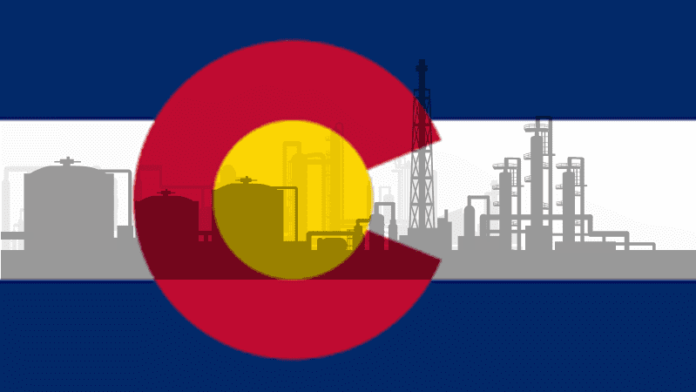
Colorado lawmakers are expected to once again take up revising oil and gas rules in the state, the latest such effort in a long line of activity over the past fifteen years. This time, action under the dome follows an election in which the public overwhelmingly voted down Proposition 112 and rejected efforts to shut down the state’s energy industry by imposing unreasonable setbacks while also witnessing a blue wave as Democrats swept races across the state.
Look for Democratic House Speaker K.C. Becker (D-Boulder) and Senate Majority Leader Steve Fenberg (D-Boulder) to lead the latest endeavor. Becker, who supported Proposition 112, said on election night she wants to “put oil and gas wars to bed.” Media reports show that Becker and Fenberg are focused on local control and health and safety issues. Setbacks, which were resoundingly defeated in November, do not appear to be under consideration this time around.
Those following the industry in Colorado know that the state has been at the forefront nationwide in tackling oil and gas issues. For example, former Democratic Gov. Bill Ritter overhauled the Colorado Oil and Gas Conservation Commission (COGCC) in 2009. In 2014, under Gov. John Hickenlooper, agreements were reached with stakeholders on methane emissions. As late as this past December, environmental groups, school boards and the industry reached agreement on increasing school setbacks.
There are of course some voices in Colorado that are hostile to what Becker called after the November election a “collaborative” approach. Colorado Rising objected to the school setbacks, arguing it wasn’t enough. The Executive Director for Colorado Rising, a former state representative who has been a top critic of the industry, has been clear about his outright opposition to the oil and gas development in the state saying that not doing something about oil and gas “would be something that would relegate me to the depths of hell.” Most recently, Colorado Rising shut down a town hall hosted by a leading State Senate Democrat talking about oil and gas.
National groups like 350.org recently revealed that 2018s Proposition 112, the setback proposal handily defeated at the ballot box last fall, was designed to “fundamentally break” the oil and gas industry.
This same group has trumpeted health and safety issues as well, fully backing a lawsuit brought by a young activist named Xiuhtezcatl Martinez. The Colorado Supreme Court ruled in a unanimous opinion that the COGCC did have a proper role in “fostering” the industry while considering impacts, and also the cost and feasibility: “[T]he provisions make clear that the Commission is required (1) to foster the development of oil and gas resources, protecting and enforcing the rights of owners and producers, and (2) in doing so, to prevent and mitigate significant adverse environmental impacts to the extent necessary to protect public health, safety, and welfare, but only after taking into consideration cost-effectiveness and technical feasibility.”
Of note, the state of Colorado has made health and safety a priority for years, including ensuring a robust collection of information and response to citizens’ health concerns, including numerous oil and gas community investigations conducted by the Colorado Department of Public Health and Environment’s Oil and Gas Health Information and Response (OGHIR) Program. Colorado’s health department and the state’s top medical officials released a key health assessment report in 2017 that included analysis of more than 10,000 air samples in areas with “substantial” oil and gas operations and found emission levels “safe,” even for sensitive populations.
The OGHIR report themselves, dated through December 2018, have repeatedly found measurements of air concentrations, as the report dated April 11, 2018, for “60 substances analyzed… were below short- and long-term health based reference values and approximately the same as the average air concentrations along the Front Range.”
“Based on the results from this preliminary air sampling investigation,” the OGHIR authors continued, “there appears to be a low risk for harmful health effects due to exposures from VOCs.” Another report, dated Dec. 13, 2018, says, “All air concentrations of the individual and combined six priority VOC’s were below short- and long-term health guideline values and are, therefore, unlikely to cause non-cancer health effects.”
These numbers compiled by Colorado’s health department over the past few years came via an agreement by the Hickenlooper “blue ribbon” task force started in 2014, after the governor struck an 11th hour deal with then-Congressman Jared Polis, now the state’s governor, to study the state’s oil and gas industry and find areas of common concern and produce constructive policy recommendations.
Anyone that will take a close look at Colorado’s history on oil and gas will find a willingness by the state’s wide and various stakeholders — from industry to legislators to state regulators and the environmental community — willing to engage with one another and come together to find a practical path forward. It’s a path that continues to evolve day by day and year by year, as the state’s recent history has shown. No doubt that’s what will happen again in 2019.
About the author: Matt Dempsey is the opinion editor for Western Wire, a new news reporting project of the Western Energy Alliance. Established in 2017, Western Wire is the go-to source for news, commentary and analysis on pro-growth, pro-development policies across the West. Western Wire covers the news and viewpoints frequently overlooked when regulations and legislation are debated in Washington, D.C. and across the region. Additionally, Matt, who is based in Denver, Colorado and is with FTI Consulting, works with companies and industry groups in the energy and natural resources sector to secure positive media coverage in local, state and national media markets. He also advises on how to use this media coverage to secure the best possible government-relations outcomes.
Gecko Studio/bigstock.com














